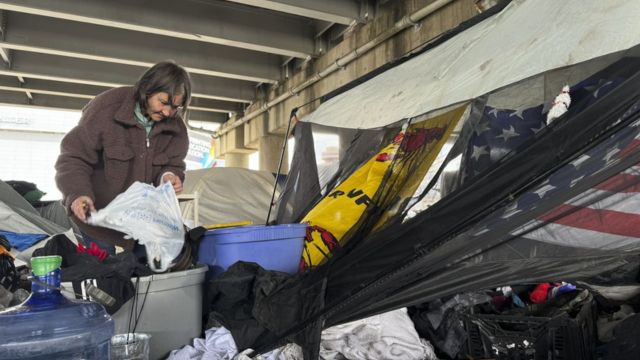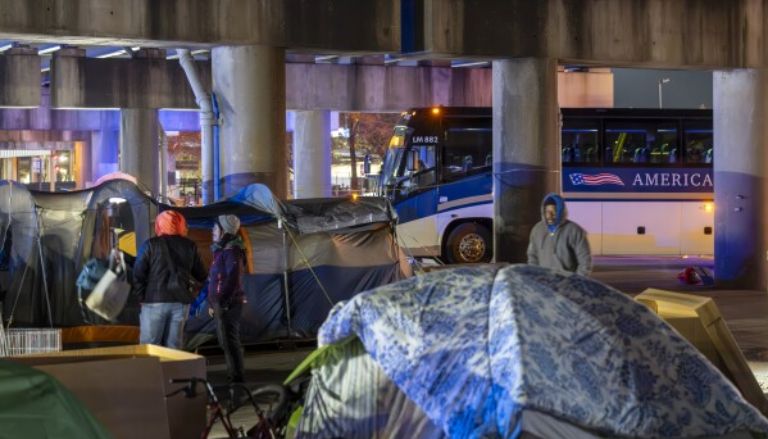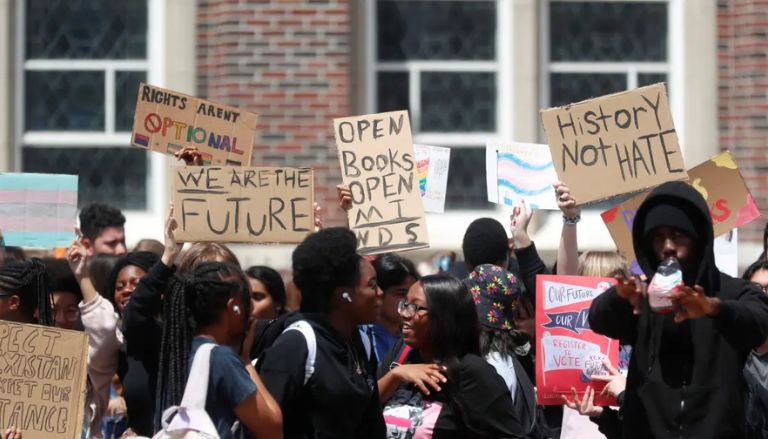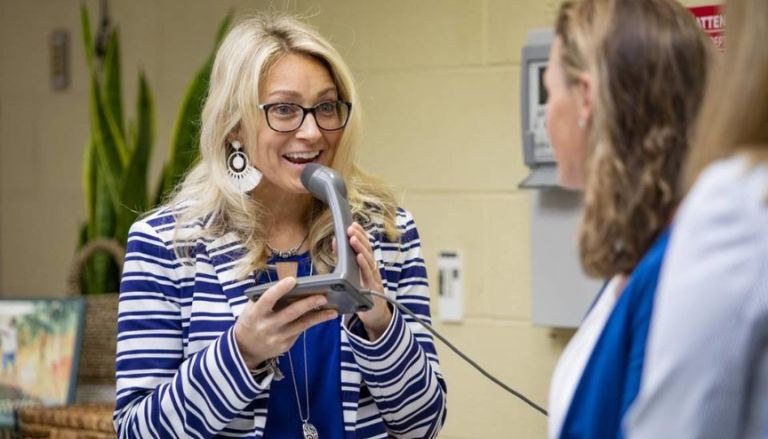NEW ORLEANS — As New Orleans gets ready to host the Super Bowl next month, Louisiana officials cleared out homeless camps around the stadium on Wednesday and moved many of the people who were living there to a temporary warehouse that costs millions of dollars to run.
Gov. Jeff Landry said the sweep was necessary to make New Orleans safer, especially after the attack on January 1 that killed 14 people. But city officials say it hurts their efforts to help homeless people.
Republicans who want to make Louisiana’s most famous city better have talked about plans to do so before the Super Bowl at the Superdome. For example, a new Louisiana State Police troop has been sent to New Orleans to clean up homeless camps and make sure that the city’s roads, sidewalks, and public transit lines are safe and clean.
Landry said in a statement on Monday, “It is in the best interest of every citizen’s safety and security to give the homeless humane and safe shelter as we begin to welcome the world to the City of New Orleans for both Super Bowl LIX and Mardi Gras.”
Last week, the state’s Supreme Court rejected an order that stopped the state police in New Orleans from cleaning up homeless camps. “Relocation notices” from the state showed up at one of the biggest homeless camps in the city, which was under an underpass near the Superdome, a few days after the decision. The notice said that “everyone must comply” and that “failure to do so may result in proceedings or enforcement actions.”
State police arrived at the camp early Wednesday morning and told people to put their things in boxes. They also told them that buses would take them to a “transitional center” miles away, which was a fenced-in building owned by the Port of New Orleans.
A spokesman for the Governor’s Office of Homeland Security and Emergency Preparedness, Mike Steele, told The Associated Press that people at the camp were told they did not have to go to the transitional center but they were not allowed to stay there and could be arrested if they did.
Ray Cooper was at the camp and was looking for his social security card among the clothes, bikes, and tents that were all over the place. Cooper is 35 years old and has mostly lived on the streets for the past few years. He turned down the state’s offer to take him to the transfer center.
“That turned me off—are we really going to a warehouse?” “I’m a person, not a UPS package or anything like that,” Cooper said.
There is room for 200 people at the makeshift center. Bart Farmer, head of Workforce Group, a company that helps people after disasters and is running the site, said that as of Wednesday night, 131 people were staying there.
The moving notice says that the center has three meals a day, bedding, showers, toilets, refrigeration for medicine, and medical care for their pets. As per a plan made by the Workforce Group and obtained by the AP, running the site for 90 days will cost the state an estimated $16.2 million.

Some people say that the moves to the center are just a temporary fix. The American Civil Liberties Union of Louisiana was one of 12 community groups that wrote a letter to the governor expressing “serious reservations about the effectiveness, cost-effectiveness and long-term impact of this approach.”
Martha Kegel, who runs UNITY, an organization that works with the city to house and help the homeless, said, “Evidence-based best practices for ending homelessness are centered on permanent housing with supportive services.”
Landry announced his plan to help the homeless on Monday. As part of it, housing and services will be given to “citizens that have jobs” first, and “people who have means will be given bus or train tickets out of state.” Even though the plan’s specifics are still not clear, Steele said that moving out of state would be up to the people who chose to do so.
Landry’s plan goes against what the City of New Orleans wants to do, which is to close these same camps by giving the people who live there long-term homes first. The city said it had asked the state for $6 million to help with these efforts and that state-led sweeps make it “take longer” to find homes and services for the city’s 1,500 homeless people.
Candice Allison, 63, said she had been without a house since Hurricane Ida destroyed her trailer in 2021. On Wednesday, she sorted through a lot of clothes and other things she wanted to keep out of the hands of the authorities because she was afraid they would come back and take her things.
Allison told him, “I’m tired because I’ve been doing this all night and haven’t eaten or slept.”







Leave a Comment